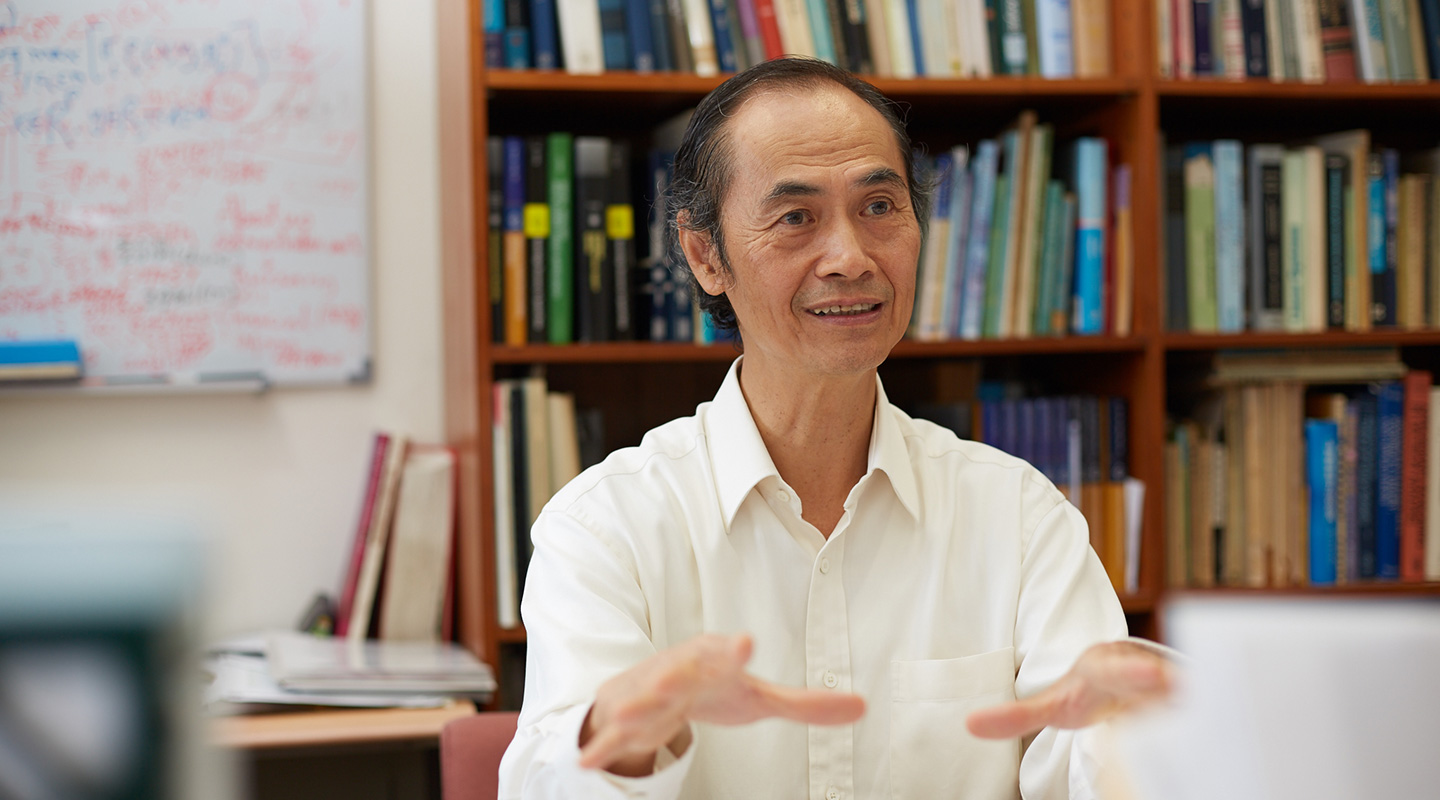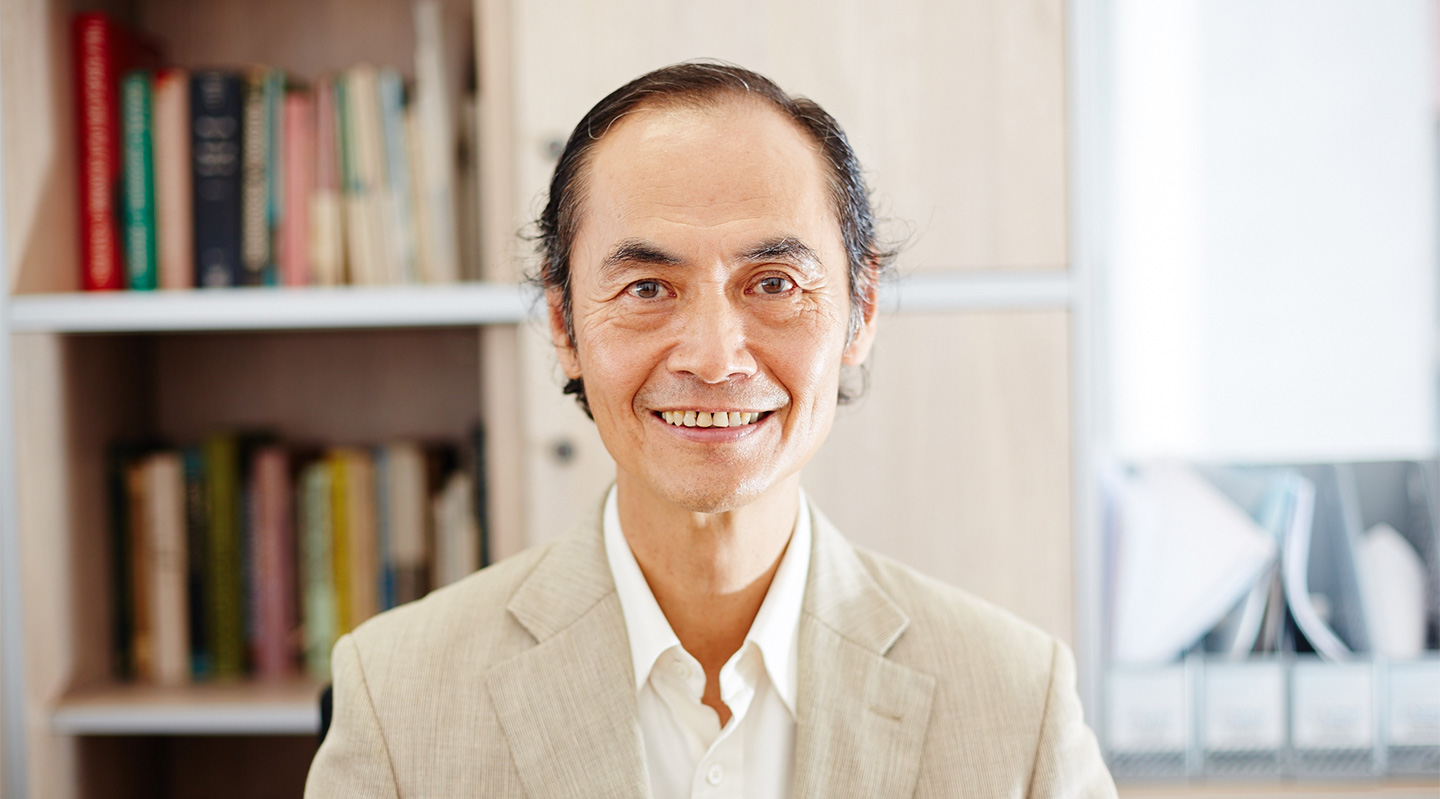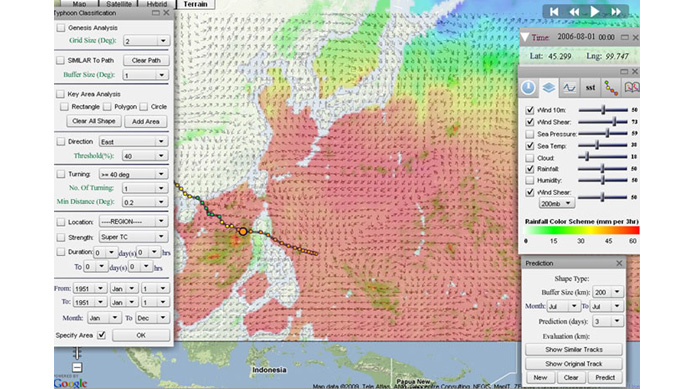Dear readers, With the launch of e-newsletter CUHK in Focus, CUHKUPDates has retired and this site will no longer be updated. To stay abreast of the University’s latest news, please go to https://focus.cuhk.edu.hk. Thank you.
Getting to Grips with the “Fuzzy” World: A CUHK geographer provides mathematical solutions to complex, vague problems

Prof. Leung Yee
Department of Geography and Resource Management
How hot is a hot day? What about a really hot day? In Hong Kong, we might set the bar at 30ºC. But if you live in Saudi Arabia, that wouldn’t move the needle. Then again, if you were an Eskimo …
Our human assessment of the world is full of such relative judgments, which are normally easy to understand. But try teaching a computer what a really hot day is. If you set the limit at 30ºC, then 30.1ºC = hot. But 29.9ºC = not. It’s binary, black and white. But wait, you say, it is also really humid, there’s no shade, and the pollution means it’s hard to catch your breath …
Welcome to the world of “fuzziness”, the mathematical term for imprecision, often in the form of human judgment. It is just such issues that CUHK geographer Leung Yee attempts to quantify, in ways that allow for a nuanced assessment of, say, whether a plot of land is suitable for urban development, or how best to transport hazardous waste from one point to another.
His work is also helping improve the development of artificial intelligence so that computers can make sensible qualitative decisions rather than simple quantitative ones. In urban planning, an inflexible quantitative approach might rule out many plots of land as unsuitable for city living because the limit of one of many variables is breached, a “binary-logic” approach. City planners, however, rely on extensive training to assess suitability on a sliding graded scale that they themselves may even find hard to articulate, or calculate.
Professor Leung’s work involves the creation of a mathematical method that expresses, for example, a “satisfaction function” for situations that have fuzzy, imprecise constraints or objectives. The formula is unique to each problem. “We have to represent it first before we can operate on it,” he says.
Typically, he then develops a computer system to generate specific results. The input may be fuzzy but the end result must quantify a problem, even if it gives a range of potential results. “We cannot be wishy-washy about our conclusions,” he says. “The process involves fuzziness, but we need a formal approach to come up with a solution.”

Professor Leung’s abstract work has led to some very concrete results. He has helped develop computer software that aids government officials and private companies to analyze “fuzzy” problems and to come up with optimal solutions. It has already been used both to fight pollution and to minimize typhoon damage in southern China.
The software platform is know as the Fuzzy-Logic-Based Expert System Shell, or FLESS, developed in conjunction with CUHK computer scientist Leung Kwong-sak. They launched the first iteration in the 1980s but it continues to be tweaked and improved.
It has been put to work by officials in Guangdong province to combat water pollution, one of the most serious problems facing the Pearl River Delta, China’s most industrially developed region. The results improve living standards by combatting the most drastic cases of industrial and agricultural runoff.
The initiative began with the Chinese Academy of Sciences in Guangdong, which incorporated FLESS into how it assesses water flow in the delta. This helps officials identify river channels that are polluted and, based on an assessment of the kinds of pollutants involved, evaluates the severity of the pollution. FLESS then presents measures to mitigate the problem. Combined with a hydrodynamic model that simulates the dispersion of effluent through the river network, FLESS helps the government decide where to test for pollution and where to build effluent-treatment plants.

Professor Leung has also worked to improve storm forecasting in Hong Kong, in a bid to prevent a repeat of the super-typhoon Wanda. That storm killed 130 people when it caused landfall in the city in 1962.
To do so, he tracked all the typhoons in the Pacific over the last 50 years. Working backwards from whether or not the typhoons caused landfall and how much damage resulted, he has unraveled “fuzzy” rules from the data that help predict whether a tropical cyclone will “recurve” back into the ocean or proceed inland. The program also predicts potential damage.
Professor Leung then shared that tropical-cyclone system with the Hong Kong Observatory, with which he collaborates. The observatory has used his findings and his methodology to improve on their own storm-prediction systems.
It usually takes Professor Leung around two years to develop the theory behind a fuzzy problem, form the analytical framework, and produce a system to solve it. From the very beginning of his career as a geographer, he was fascinated by the need to quantify the imprecision of the real world. That led him to take another advanced degree in operations research and system engineering, a form of applied mathematics, to supplement his geography doctorate.
His dual background as a geographer and a system engineer has led him to an interest in interdisciplinary solutions to real-life problems, another of his research specialities. It has also resulted in his appointment as director of the Institute of Future Cities at CUHK, a transdisciplinary research body dedicated to outlining potential pathways for sustainable urban development.
“Nowadays the problems are so complex that, a simple solution won’t be sufficient,” Leung says. “You really have to work outside your comfort zone.”
Professor Leung, who holds a post in the Department of Geography and Resource Management, notes that it can be difficult to get academics to think outside their “silos”, and to allow other researchers to work in their own fields. But he feels the traditional department-based structure of academia is found lacking when trying to tackle problems as sprawling as modern city design and planning.
“If someone comes into your turf, don’t be offended, don’t feel protective, don’t get uncomfortable – we should open our arms,” he urges. “They can collaborate and even be your inspiration because they may look at this problem differently.”
By Alex Frew McMillan
This article was originally published on CUHK Homepage in Nov 2015.